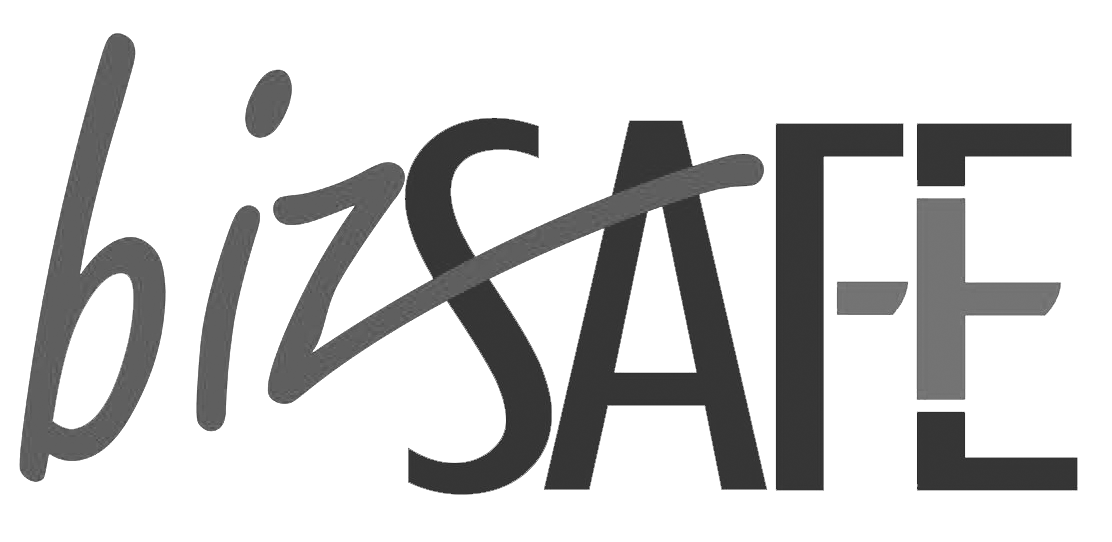Deployment of Safety Professionals
Deployment of Safety Professionals
ISRC has a team of qualified and experience in-house and associate consultants that can be deployed to organizations on full time or part time basis. We will deploy or source for suitable candidates that will be able to support the business needs and operations.
Types of Deployment
1. Full-time or Part-time Qualified Personnel
a. Workplace Safety & Health Manager
b. Workplace Safety & Health Officer
c. Workplace Safety & Health Coordinator
d. Fire Safety Manager
e. Environmental Control Officer
2. ISO Management System Internal Auditor
3. Conduct Inspections and Audits
a. Laboratory safety
b. Manufacturing plants
c. Construction projects
d. Playground safety
4. Other Ad-hoc Deployment
a. Confined space safety assessor
b. Noise monitoring officer
c. Design for Safety Professionals
d. Safe Management Officer (SMO)
a. Workplace Safety & Health Manager
b. Workplace Safety & Health Officer
c. Workplace Safety & Health Coordinator
d. Fire Safety Manager
e. Environmental Control Officer
a. Laboratory safety
b. Manufacturing plants
c. Construction projects
d. Playground safety
a. Confined space safety assessor
b. Noise monitoring officer
c. Design for Safety Professionals
d. Safe Management Officer (SMO)
Benefits of Outsourcing the Safety Professionals to ISRC
1. Over a Decade of Experience with Track Record
Our in-house and associate consultants have relevant experience to support organizations. We are able to work independently and more importantly, deliver the results that we promised.
2. Dedicated Employment Agency
ISRC has a team of trained Employment Agency (EA) personnel that can help source suitable candidates and practice fair employment practices that are fair, merit-based and non-discriminatory.
3. Fair Hiring Practices
We will provide fair remuneration and benefits to our consultants.
4. In-House Experts
The safety consultant can approach our in-house subject matter expert to help problem solve the challenges faced during the deployment.
5. Massive Knowledgebase
The safety consultant will be able to tap onto the vast resources that ISRC has built up over the years.
6. Human Resource Management Capabilties
ISRC has also built up in-house Human Resource (HR) Management capabilities with streamlined processes and systems.
7. Flexible Workforce to Meet Statutory Requirements
Organizations will be able to manage the Occupational Health & Safety (OSH) function flexibly as business needs changes.
Our in-house and associate consultants have relevant experience to support organizations. We are able to work independently and more importantly, deliver the results that we promised.
ISRC has a team of trained Employment Agency (EA) personnel that can help source suitable candidates and practice fair employment practices that are fair, merit-based and non-discriminatory.
We will provide fair remuneration and benefits to our consultants.
The safety consultant can approach our in-house subject matter expert to help problem solve the challenges faced during the deployment.
The safety consultant will be able to tap onto the vast resources that ISRC has built up over the years.
ISRC has also built up in-house Human Resource (HR) Management capabilities with streamlined processes and systems.
Organizations will be able to manage the Occupational Health & Safety (OSH) function flexibly as business needs changes.
Qualified Safety Professionals to Satisfy Statutory Requirements for Your Project
Under the Singapore WSH (Workplace Safety & Health Officers) Regulations 2007 (second schedule), the following workplaces are required to appoint a Workplace Safety and Health Officer (WSHO):
1. Shipyards in which any ships, tankers and other vessels are constructed, reconstructed, repaired, refitted, finished or broken up;
2. Factories used for processing petroleum or petroleum products;
3. Factories in which building operations or works of engineering construction of a contract sum of $10 million or more are carried out; and
4. Any other factories in which 100 or more persons are employed, except those which are used for manufacturing garments.
1. Shipyards in which any ships, tankers and other vessels are constructed, reconstructed, repaired, refitted, finished or broken up;
2. Factories used for processing petroleum or petroleum products;
3. Factories in which building operations or works of engineering construction of a contract sum of $10 million or more are carried out; and
4. Any other factories in which 100 or more persons are employed, except those which are used for manufacturing garments.
Under the WSH (Construction) Regulations 2007, workplace safety and health coordinator shall be appointed in respect of every worksite where the contract sum of the building operation or works of engineering construction carried out therein is less than $10 million.
Under the Code of Practice for Environment Control Officers and in compliance with the Environment Public Health (Registration of Environmental Control Officers) Regulations 1999, construction sites are required to employ either part-time or full-time ECO depending on the contract sum of the construction works as shown below:
Contract Sum of Constructions Works
Type of ECO Required
$10 million & below
Not Required
Exceed $10 million but not exceeding $50 million
Part-Time ECO
Exceed $50 million
Full-Time ECO
Contract Sum of Constructions Works
Under the Fire Safety Act 1993 and the Fire Safety (Fire Safety Managers) Regulations, all Public or Industrial Buildings which satisfy at least one of the following conditions are required to appoint a fire safety manager:
1. A Public Building that
• has 9 storeys or more (including any basement);
• has an occupant load of 1,000 persons or more; or
• has a floor area of 5,000 square meters or more.
• Excluding any buildings specified in paragraph 3 of the Fire Safety (Fire certificate – Designated Buildings) Notification 2020 *G.N. S[000]/2020)
2. An industrial building that
• has an occupant load of 1,000 persons or more; or
• has a floor area or site area of 5,000 square metres or more
3. A foreign employee dormitory that
• has an occupant load of 1,000 persons or more; or
• has a floor area or site area of 5,000 square metres or more
4. A hospital
• has 9 storeys or more (including any basement);
• has an occupant load of 1,000 persons or more; or
• has a floor area of 5,000 square meters or more.
• Excluding any buildings specified in paragraph 3 of the Fire Safety (Fire certificate – Designated Buildings) Notification 2020 *G.N. S[000]/2020)
• has an occupant load of 1,000 persons or more; or
• has a floor area or site area of 5,000 square metres or more
• has an occupant load of 1,000 persons or more; or
• has a floor area or site area of 5,000 square metres or more
Under the WSH (Design for Safety) Regulations 2015, projects that have contract value of $10 million or more will be required to appoint a Design for Safety Professional to facilitate the DfS review process and the preparation of DfS register
Under the WSH (Confined space) regulations, a confined space safety assessor is to be appointed to carry out testing of the atmosphere and issuance of confined space entry permit for the purpose of persons entering and working safely.
Under the WSH (Noise) Regulations 2011, a noise monitoring officer is to be appointed:
- to conduct noise monitoring when 10 or more people in your workplace are likely to be exposed to excessive noise
- to advise on all proper noise control measures when 50 or more people in your workplace are likely to be exposed to excessive noise
Under the WSH (General Provisions) Regulations, workplace that uses or generates toxic substances must engage a toxic substances monitoring officer to conduct regular toxic substances monitoring. The frequency of monitoring is dependent on the level of contaminant compared against the Permissible Exposure Limit (PEL) as stated in WSH (General Provision Regulations) First Schedule.
Recommended frequencies for monitoring:
Ratio (%) of concentration of contaminants compared to PEL
Frequency of monitoring
< 10% PEL
No monitoring is required. A re-assessment should be carried out if there is any change in the process.
10% to 50% PEL
At least once a year.
> 50% to 100% PEL
At least once every 6 months.
> 100% PEL
At least once every 3 months, until the exposure is reduced to below the PEL by appropriate control measures.
Ratio (%) of concentration of contaminants compared to PEL
Frequency of monitoring
< 10% PEL
No monitoring is required. A re-assessment should be carried out if there is any change in the process.
10% to 50% PEL
At least once a year.
> 50% to 100% PEL
At least once every 6 months.
> 100% PEL
At least once every 3 months, until the exposure is reduced to below the PEL by appropriate control measures.





